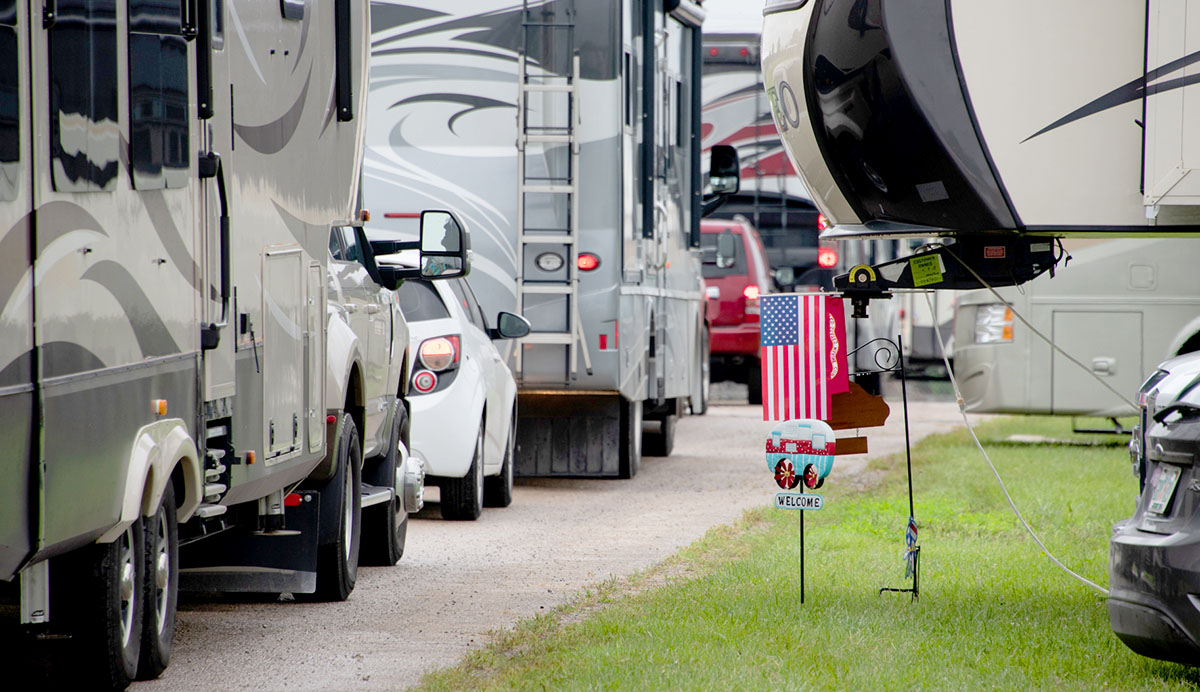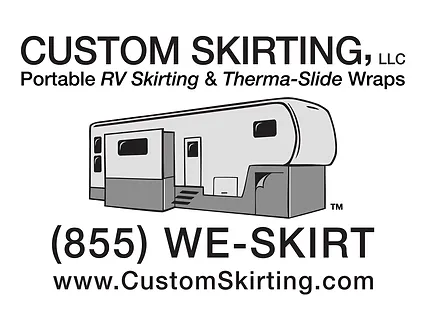
The Complete Guide to RV Classes
Table of contents
RVs offer a wide range of options and one of the most critical decisions you’ll make as an RV enthusiast is choosing the right RV class for your needs. In this complete guide, we will explore the various RV classes, including Class A motorhomes vs Class B vs Class C, travel trailers, fifth-wheel trailers, and pop-up campers. We’ll examine the characteristics, pros, and cons of each class, and provide tips for potential buyers. So, let’s dive into the world of RV classes and help you make an informed decision.
Class A RVs

Class A RVs are the epitome of luxury on wheels. These motorhomes are typically the largest, resembling a bus in design, and provide spacious and well-appointed living spaces. Class A motorhomes are built on a heavy-duty chassis and often come equipped with all the amenities you’d expect in a home, including full kitchens, bathrooms, entertainment systems, and ample storage
Pros and Cons of Class A RVs
Pros:
- Spacious interiors for comfortable living.
- High-end amenities and luxury features.
- Excellent driving visibility.
- Suitable for long-term and full-time travelers.
Cons:
- Larger sizes can be challenging to maneuver.
- Lower fuel efficiency.
- Higher maintenance and operational costs.
- Limited off-road capabilities.
Tips for Potential Buyers
- Consider your budget carefully, as Class A RVs can be expensive.
- Test drive various models to assess driving comfort and handling.
- Evaluate your storage needs to ensure you have enough space for your belongings.
- Plan your route and destinations to accommodate the size of the Class A RV.
Class B RVs

Class B RVs, often referred to as camper vans, are compact and versatile motorhomes. They are smaller in size, making them easy to drive and park, even in urban environments. Class B RVs provide the essentials for a comfortable journey, such as a kitchen, bathroom, and sleeping space, all within the confines of a van chassis.
Pros and Cons of Class B RVs
Pros:
- Maneuverable and easy to drive.
- Fuel-efficient, often based on standard van platforms.
- Versatile and can be used as a daily vehicle.
- Better for camping in smaller, more remote spaces.
Cons:
- Limited interior space.
- Fewer amenities compared to Class A motorhomes.
- Not suitable for extended periods of living on the road.
- Smaller bathrooms and sleeping areas.
Tips for Potential Buyers
- Prioritize your travel style, as Class B RVs are ideal for frequent weekend getaways.
- Consider the number of passengers you’ll be traveling with.
- Think about your essential amenities and comfort requirements.
- Ensure the van’s size aligns with your parking and storage options.
Class C RVs

Class C RVs are a middle ground between Class A and Class B motorhomes. They are built on truck or van chassis and feature a distinctive over-cab sleeping area. Class C RVs offer a blend of comfort, convenience, and mobility, making them a popular choice among families and adventurers.
Pros and Cons of Class C RVs
Pros:
- Spacious and comfortable interiors.
- Better fuel efficiency than Class A motorhomes.
- Over-cab area provides additional sleeping or storage space.
- Suitable for a wide range of travel styles.
Cons:
- Smaller than Class A RVs, so some amenities may be limited.
- Less maneuverable than Class B RVs.
- May not have as many luxury features as Class A motorhomes.
- Can be challenging to park in tight spaces.
Tips for Potential Buyers
- Assess your travel group’s size and comfort requirements.
- Consider the destinations you plan to visit and the roads you’ll be driving on.
- Determine the importance of the over-cab space for your needs.
- Research available floorplans and amenities to find the right fit.
Travel Trailers

What are Travel Trailers?
Travel trailers are towable RVs designed to be pulled by a separate vehicle, such as a truck or SUV. They come in various sizes and layouts, ranging from compact teardrop trailers to spacious, multi-room models. Travel trailers offer the freedom to detach the living space from the tow vehicle, allowing you to explore your destination without the need to drive a larger motorhome.
Pros and Cons of Travel Trailers
Pros:
- Versatile and come in various sizes.
- Cost-effective compared to motorhomes.
- Easily unhitched for local exploration.
- Wide range of floorplans and amenities available.
Cons:
- Requires a separate towing vehicle.
- May require additional setup and leveling.
- Limited interior space in smaller models.
- Not ideal for those who prefer all-in-one RV solutions.
Tips for Potential Buyers
- Determine your towing vehicle’s capabilities and restrictions.
- Consider your camping preferences, such as boondocking or staying in campgrounds.
- Research different travel trailer layouts to match your specific needs.
- Ensure you have the necessary equipment for towing, such as a hitch and brake controller.
Fifth-Wheel Trailers

What are Fifth-Wheel Trailers?
Fifth-wheel trailers are a type of travel trailer that connects to a hitch located in the bed of a pickup truck. They are known for their distinctive front overhang, which provides additional living space, often in the form of a master bedroom. Fifth-wheel trailers offer spacious interiors and are popular among long-term travelers and those who seek a luxurious RV experience.
Pros and Cons of Fifth-Wheel Trailers
Pros:
- Spacious and luxurious interiors.
- Towed with a pickup truck for better stability and maneuverability.
- Often feature multiple slide-outs for added space.
- Ideal for full-time living or extended trips.
Cons:
- Requires a pickup truck for towing.
- Larger sizes can limit campground options.
- Setup and hitching can be more complex.
- Potentially higher cost than traditional travel trailers.
Tips for Potential Buyers
- Ensure your pickup truck has the necessary hitch and towing capacity.
- Consider your budget, as fifth-wheel trailers can be a significant investment.
- Research available models and floorplans to find one that suits your needs.
- Pay attention to the weight and size limitations of campgrounds you plan to visit.
Pop-Up Campers

Pop-up campers, also known as tent trailers or fold-down campers, are compact and lightweight RVs that fold down for towing and storage. When unfolded, they provide sleeping and basic living quarters. Pop-up campers are a great choice for those who want a simple and affordable camping experience.
Pros and Cons of Pop-Up Campers
Pros:
- Lightweight and easy to tow.
- Affordable compared to other RVs.
- Compact and easy to store when not in use.
- Ideal for camping in nature and off the beaten path.
Cons:
- Limited interior space and amenities.
- Setup and takedown can take time.
- Not suitable for extreme weather conditions.
- Basic accommodations without the luxuries of larger RVs.
Tips for Potential Buyers
- Ensure your towing vehicle can handle the weight of the pop-up camper.
Consider your camping style, as pop-up campers are best suited for outdoor enthusiasts. - Prepare for the setup and takedown process, which may require some effort.
- Invest in additional camping equipment for a more comfortable experience, such as portable cookware and camping furniture.
Conclusion
In the world of recreational vehicles, there is no one-size-fits-all solution. Your choice of RV class should align with your individual needs, preferences, and travel style. It’s crucial to understand the distinct characteristics and advantages of each class, from the luxurious Class A motorhomes to the compact and versatile Class B RVs, and everything in between.
When selecting an RV class, consider factors like your budget, the size of your travel group, the destinations you plan to visit, and your desired level of comfort and amenities. The right RV should enhance your travel experiences and make your adventures on the road more enjoyable.
Experience the Nation’s #1 Skirting Solution!
Once you’ve chosen the ideal RV for your adventures, it’s essential to prepare for all seasons, including the harsh winter months. Don’t compromise on quality or convenience when it comes to your RV skirting. At Custom Skirting, we blueprint and custom-tailor your RV skirting on-site, ensuring a flawless fit that provides unparalleled protection.
Our exclusive “No-Snap, No-Gap” channel system seals out water, snow, and wind more effectively than any other product on the market. With over a decade of testing and improvements, our skirting has faced the harshest winters across the northern United States and Canada, emerging as the top choice for RV enthusiasts. Plus, its user-friendly design is ready to move with you whenever adventure calls.
Get Custom Skirting today, and experience the difference for yourself! Don’t let winter weather keep you from enjoying your RV. Ensure your comfort and protect your investment with our top-quality skirting solution.
